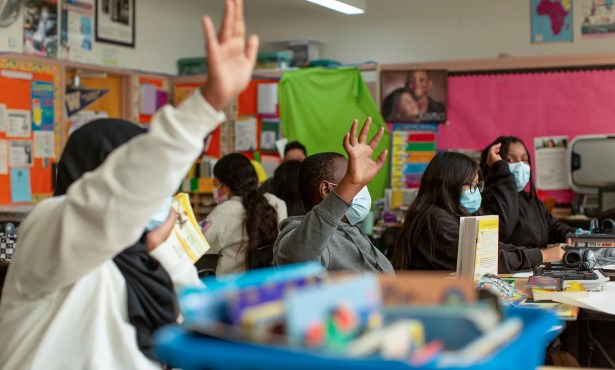Former ‘Indy’ Staffer in Milan Describes Life in a Red Zone
Biagio Manzotti Says U.S. Should Learn from Italy’s Mistakes and Take Its Lead on Widespread Testing

Biagio Manzotti was the Santa Barbara Independent’s calendar assistant from 2017 to 2018. He’s now back in his home country of Italy, specifically the city of Milan, the epicenter of the nation’s coronavirus outbreak. We spoke by Skype about what it means to live in a highly restrictive Red Zone and how what’s happening in Italy may foreshadow near-future life in the United States.
One of Italy’s first confirmed coronavirus patients was a 38-year-old business manager living in the southern part of Milan, Manzotti explained. “He went to the hospital, and that’s when the spread really happened.” Now, Italy’s health-care system is critically overburdened with 27,980 cases and 2,158 deaths. Doctors are rationing beds and ventilators, obituaries fill local newspapers, and survivors mourn alone because of a ban on group gatherings. “They’re just letting people die because there’s no room in the hospitals,” Manzotti said. “All of this started happening less than a month ago.”
The Milanese are now living under what is essentially house arrest, he went on, in what authorities are calling a Red Zone. No one is allowed to venture outside their home without a permit. All stores are closed, except for supermarkets, banks, pharmacies, and tobacco shops. Schools, theaters, gyms, and restaurants shut down weeks ago. “It’s really eerie,” Manzotti said. As a marketing manager, Manzotti received permission to work in his company’s downtown office, but his bosses ordered that only a single employee occupy each floor.
While the government’s goal is to curb as much social interaction as possible, it’s been difficult for Italians, who, like the Spanish, are accustomed to physical closeness. They’re used to greeting others with kisses on both cheeks, said Manzotti, who also theorized the tradition may have initially helped spread the virus. That and Italians’ love for smoking, which exacerbates the respiratory illness it causes. It’s been even harder to not check in on his 93-year-old grandmother, Manzotti continued. She’s a “strong Italian grandma” and doing okay, he said, but she’s still adjusting to having food delivered and not going out every day.
The impact on Italy’s economy will be “a nightmare,” Manzotti predicted. Even before the pandemic, the country was on shaky financial footing, and now, with an inevitable hit to its key tourism market, things will get even worse. “It’s going to be really, really bad,” he emphasized. “But at this point, we’re still just trying to contain the virus and keep peace.” He pointed to recent jail riots as just one emergency taking priority.
If there’s any silver lining, it’s that Italians, especially the older ones, are embracing technology in ways they never had before, simply in order to communicate with others. Skype, Zoom, and FaceTime are all being used by a generation that had mostly shunned digital interaction. “In America, you eat technology for breakfast,” Manzotti joked. “Italy had fallen behind a lot of other countries, but now we’re using it more.” Another platform is also helping the public keep calm and occupied ― Pornhub, the world’s largest pornography website, is giving all Italians its premium content for free.
In terms of containing and preventing further coronavirus spread, Italy should be viewed as a “beta test” for other western countries, Manzotti said. The United States ought to learn from its mistakes, like not reacting quickly or determinedly enough, but should also take heed of the things it’s doing well, such as widespread testing, he said. Manzotti himself was tested within minutes outside a subway station. “It’s so important,” he said. “Otherwise, how else do you know what you’re dealing with?”
Above all, Manzotti urged, Americans would be wise to consider the well-being of their neighbors, not just of themselves. “If you’re younger, don’t be dumb,” he said. Don’t go out to bars, consider skipping the gym, and wash your hands every chance you get. “Think about other people,” he said. “Especially older people.” That also means not hoarding food and supplies.
Italy’s goal at the moment is to stop the virus from spreading to the rural parts of the country in the south, where there are even fewer hospitals and supplies. Meanwhile, the casualties keep increasing. Manzotti has a friend who recently lost a family member and a coworker. “All of this really means changing your mindset,” Manzotti explained. “I can’t just think about myself. I have to think about the entire country.”


